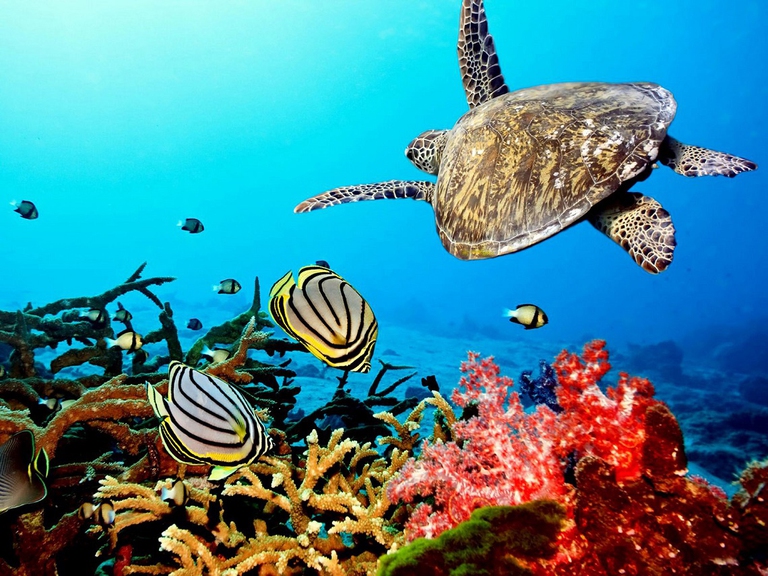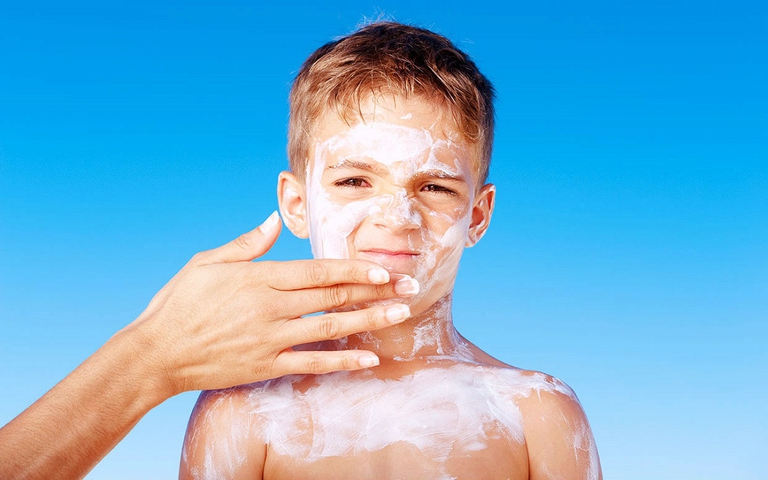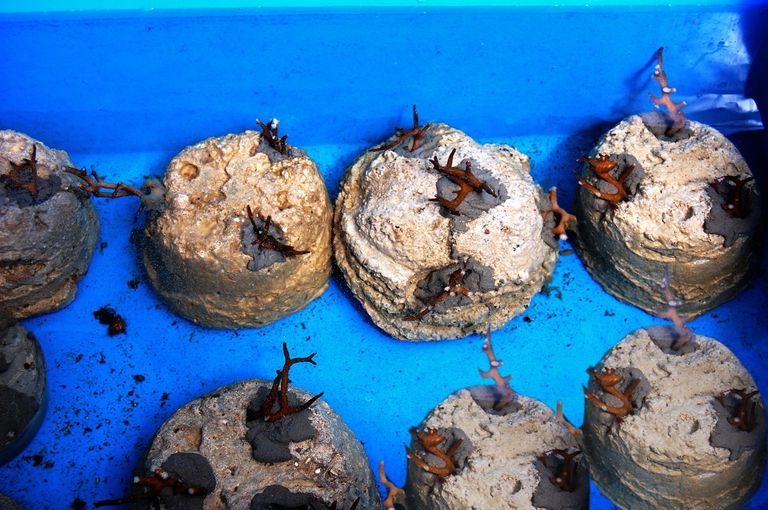
Refusing the anthropocentric vision and respecting the laws of ecology is the only way to safeguard the future of our and all other species, Sea Shepherd President Paul Watson argues in this op-ed.
Un nuovo studio ha dimostrato che un ingrediente presente nella maggior parte delle lozioni solari ha un impatto devastante sui coralli.
Coral reefs are one of the planet’s richest habitats. They offer shelter and sustenance to an incredible variety of animal and plant species. However, climate change and the rising ocean acidification, added to man-related impacts, are deteriorating these ecosystems.
Scientists have discovered a new threat: sunscreens. According to a study carried out by an international team of researchers, these products, which protect our skin from burn and UV rays, are jeopardising coral reef survival worldwide.
Most of sun creams contain an ingredient that is toxic to corals, the oxybenzone. This chemical, developed to filter UV rays, not only kills the coral, it causes DNA damage in adults and deforms the DNA in coral in the larval stage, making it unlikely they can develop properly.
The study, published by the magazine Archives of Environmental Contamination and Toxicology, shows that the higher oxybenzone concentration levels are located near coral reefs of the most popular tourist sites, such as the Caribbean and Hawaii.
According to researchers, in areas home to coral reefs, 6,000 to 14,000 tonnes of sun cream are used every year, many of them containing the hazardous substance. In fact, oxybenzone is contained in over 3,500 sunscreen products worldwide.
“The use of oxybenzone-containing products needs to be seriously deliberated in islands and areas where coral reef conservation is a critical issue,” said Craig Downs, researcher at the Haereticus Environmental Laboratory and lead author of the study.
Some areas of the world are taking measures to restore coral reefs. In Australia, for instance, the government is testing a new technique to help coral reefs face the steady increase in sea temperatures, by genetically modifying coral species.
Moreover, in Indonesia, an artist realised an artificial coral reef to shelter marine biodiversity. However, such interventions, according to Dawns, will be useless if the root causes of the death of coral reefs are not tackled.
Siamo anche su WhatsApp. Segui il canale ufficiale LifeGate per restare aggiornata, aggiornato sulle ultime notizie e sulle nostre attività.
![]()
Quest'opera è distribuita con Licenza Creative Commons Attribuzione - Non commerciale - Non opere derivate 4.0 Internazionale.
Refusing the anthropocentric vision and respecting the laws of ecology is the only way to safeguard the future of our and all other species, Sea Shepherd President Paul Watson argues in this op-ed.
Oil isn’t attractive anymore. The coral reef and the ocean are worth more protecting instead. This is the historic decision made by Belize, small Central American country on the border with Mexico and Guatemala that has banned all future oil explorations within its territorial water in order to protect its great barrier reef. The Belize
Japan is the first country to experiment mining deep-sea hydrothermal vents. These hostile yet unique habitats are rich in life and precious minerals, leading to interest in both researching and mining them.
Climate change is the direct consequence of global warming. Here’s everything you need to know about the causes and effects of one of the biggest threats facing our time.
Veri e propri paradisi in terra. Riserve protette per gli ultimi esemplari di specie in via d’estinzione. Grazie all’ecoturismo è possibile proteggerli.
According to Mother Nature Network, these are the top 10 extraordinary places to visit before they vanish, as they’re threatened by desertification, sea level rise and extreme weather events caused by climate change. Glacier National Park, United States The Glacier National Park, Montana, United States. About 100 years ago, the park was home to 150 glaciers. Now there are only 27
Chasing Coral is a Netflix documentary on coral reefs. Over the past 30 years half the world’s corals have gone forever, but the hope of saving these extraordinary animals is still alive. This is why everyone should watch it.
Indian coal giant Adani’s Carmichael project, worth 16.5 billion Australian dollars, in the Galilee basin in Queensland is projected to be the largest mine in Australia and one of the largest in the world. After an international campaign to block it, Gautam Adani, the Indian billionaire founder of the conglomerate of the same name, announced
Here’s a selection of official statements released by C40 mayors from all over the world speaking up against Donald Trump’s decision to withdraw the United States from the Paris Agreement, and confirming their commitment to defending the accord and continuing to fight climate change. Anne Hidalgo, Mayor of Paris and Chair of C40 Cities “Climate










